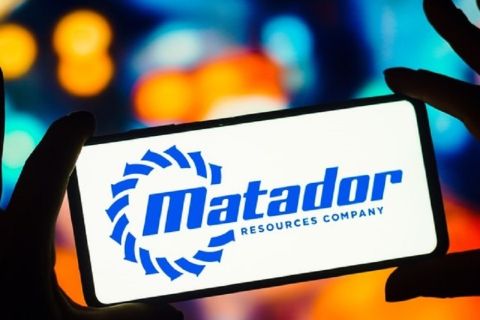During the past year, a tidal wave of e-commerce companies has flooded the energy industry with promises to revolutionize the way business is done. The industry responded to the deluge with a little skepticism, perhaps, but also a lot of hope. If the results lived up to the hype, a lot of time and money could be saved by doing business online. The majors, of course, have made the biggest splash with their grandiose plans and predictions. More than 90% of BP's transactions will be done online by year-end, Hunter Row, BP's manager of digital business development, told an audience at this year's Banc of America Securities LLC energy investment conference in Houston. But plenty of independents and smaller companies also are interested in e-commerce, especially e-procurement. With more and more energy Internet portals up and running, a growing number of operators and service companies are testing the waters of e-procurement and striking deals online. Their initial reactions have been quite enthusiastic, but they still have some questions and concerns about this emerging marketplace. In general, executives say that the ability to buy and sell online is a useful supplement to the more traditional ways of doing business. In Corpus Christi, Texas, Jeff Watson helps run the family-owned Watson Pipe Inc., which supplies casing and tubing to independent exploration and production companies. Though face-to-face networking remains a vital part of the business, bidding for jobs over sites such as NetworkOil has exposed the company to many potential customers that it would never have found on its own, Watson says. "Generally, before NetworkOil was involved, we would work off drilling permits-find out who's drilling wells-and we would call that way," Watson says. Often, however, the operators have already chosen a casing and tubing vendor by the time Watson gets their names off the permits. "Now we're getting to take a look at different independents who never would have given us the opportunity to quote. We're getting to quote a bigger market." When a NetworkOil user is looking for a casing or tubing supplier, the site notifies Watson Pipe by e-mail that it has an inquiry. The inquiry lists all the relevant information for the oil company and its job. If interested, Watson Pipe fills out the online application and submits the bid. If Watson doesn't send the bid back after a certain amount of time, NetworkOil will call or e-mail a reminder that the inquiry is still waiting for him. "It's unbelievable to me that they've come this far," Watson says. "I would have never thought something like this could have happened before." Arnold Lee, a landman with AEC Oil and Gas, a subsidiary of Alberta Energy Co. Ltd., also appreciates the global reach of the Internet. In mid-May, his company uploaded information on some available properties onto IndigoPool.com, and the responses poured in from all over. "We're getting wider exposure than we would by conventionally marketing our properties," he says. Traditionally, AEC would pinpoint companies that own assets near a particular prospect. First contact would then be made to gauge a company's interest in the prospect, leading, in the best case, to a business arrangement benefiting both parties. Sometimes, this process takes months, Lee says. But by using a site such as IndigoPool.com, AEC can post extremely detailed information on the Internet and expedite the process. "It's essentially a full technical presentation," he says. "From geological information to the ability to run customized economics online, we're afforded the flexibility to provide the information we feel is necessary to properly market the prospect. " Placing this information on the site didn't take any in-house Internet expertise. The company sent a paper presentation to IndigoPool, and the staff there did the rest, he says. "You can track who visits your prospects, and you can look at who hit the Internet site and who hit your prospects," he adds. "The volume of hits has been pretty consistent for the time of year (summer). I'm encouraged by it." On the other side of the equation, of course, are the buyers. Tom McCarthy, a geologist with Bass Enterprises, was part of a team that purchased a 3-D prospect from Horizon Exploration using PetrisX Internet Data Room. It was the first property sold via the service since PetrisX was introduced early this year. "It gets you the key elements of the things we like to look at right away," McCarthy says of the data room. "You don't have to make a bunch of phone calls and say, 'Can you fax me a map showing me where it is? Can you fax me a key seismic line so I can get a feel for what it looks like?'" Without the Internet, Bass Enterprises employees would telephone the seller to talk about the property. If it's in a well-known area, things go pretty smoothly. But if it's an area that the buyer does not know well, the process can become difficult. "What happens is an executive or a manager will talk to one of their friends, and he'll come back and say, 'I've just talked to so-and-so. He's got a deal in such-and-such county. I think we need to look at it,'" McCarthy says. "You get on a plane and take a look at it, and it's nothing like either one of you thought it would be. And you've just wasted a whole day and air fare." If a property looks good on the computer monitor, as did Horizon's, a site trip is still necessary. McCarthy-along with a geophysicist, a landman and a manager-took one trip to the prospect before finalizing the deal. "I think [the Internet] makes the front-end process a lot smoother," McCarthy says. "We'll always still have to go and sit face-to-face with the people and get all the details and actually look at a lot more data. But being able to look at the really key elements-a map, a couple of really good seismic lines, maybe a log-to look at those three things right off the bat makes a really big difference." In addition to purchasing properties or supplies over the Internet, some companies are sending out electronic bids for complex, engineered services. A little less than a year ago, Westport Oil & Gas of Denver began purchasing services such as drilling and construction through WellBid. (See sidebar for information about WellBid's recent merger with eNersection, and other e-commerce news.) Today, Westport procures services over the Internet for more than half of its new onshore projects. "Generally, we don't have any alliances [with service companies], or very few. Most of our projects are based on a competitive bid process, so the WellBid system fits us to a 't,'" says Andy Ashby, vice president of operations for Westport. Rather than have a purchasing manager send out requests for bids, Westport's design engineers are in charge of procuring the services for their projects. They have the best understanding of the requirements for their wells and can judge whether substitutions may be made on a job, Ashby says. The bids are sent out to at least four vendors, and the winning service company is not always the lowest bidder. "We certainly know Company A may offer the lowest price, but they may not have quite what we need. Or they don't quite provide the same service or don't have quite the same quality of personnel we want to use on this project," Ashby says. The electronic bidding process saves Westport a tremendous amount of time and allows the company to reach more vendors. "Typically, we would actually be spending days on the procurement process," he says. "At this point, I can sit down with the system, input [the bid] and we can get it out to the various suppliers or service companies in a matter of about three our four hours...I want to see more and more Internet use out of my people, just by virtue of the fact it allows them to cover more ground in a given day." Despite the speed and ease of the Internet, the one-on-one relationships with service companies are still as important as ever for Westport. "We need to be assured we will still have the same service if something does go awry, be it on the logistics side or the implementation side or a mechanical failure. We need to know that we always have someone from that particular company coming in to service our needs." As with any rapidly emerging arena, there are concerns about e-commerce. Though the global reach is certainly a plus, it can be challenging dealing with so many new companies. Lee, from AEC, says that expanding his relationships outside of the close-knit Calgary oil community is somewhat of an adjustment. "Because the industry's so close in Calgary, you really know who's credible and who's not," he says. "Now, somebody from outside Calgary will call you up, and you really don't know anything about them. You don't know how they do business...It's a different way of developing relationships that we're all trying to feel our way through." One small supplier adds that it's often not fruitful to fill out bid after bid from random companies that he doesn't know well. "It takes hours, and I've only been awarded one bid so far," the supplier says. To promote their services, some e-commerce sites offered free access for an introductory period. For many users, that period is over, and fees are becoming a factor. Some sites take a percentage of every transaction, charge regular membership fees, or use a combination of different fees. An executive from a privately owned service company says that the large number of e-commerce companies that cater to the energy industry is overwhelming. His company can't afford to join all of them. However, his company is being careful not to choose sides too soon. There are fears that if a major oil company is aligned with an e-commerce company, such as Chevron and Texaco's PetroCosm or the large group of operators in Trade-Ranger, a supplier must operate through that site to get the major's business. "We're just on the fence, so to speak. We don't want to get caught between the [e-commerce companies] and the majors," the executive says. "We don't really know which way to go. We're afraid of allying with somebody, and then they fold. The industry as a whole is going to have to gather the wagons, so to speak, and come up with one or two; we cannot afford to be involved with all of them. We're going along as far as we can to see how this is going to shake out." According to Spears & Associates, a Tulsa-based consulting firm, which interviewed more than 70 oil companies for its recent "e-Commerce Oilfield" report, the population of Internet energy portals will drop dramatically in time, leaving just the fittest ones. As this happens, the traffic on remaining sites will grow. Up to 50% of the transactions for goods and services such as artificial lift, casing and cementing equipment could happen online in the next few years, according to the report. Another major web survey by Cap Gemini Ernst & Young US LLC says the true value of e-business will make itself apparent in about 18 months: "The industry will begin to drift apart in 2002, with companies that have aggressively invested in e-business moving ahead of others by reducing their cost structures and creating new revenue growth opportunities." E-merging alliances Early adopters of e-commerce have been overwhelmed by the number of startups competing for their business, and analysts have predicted that consolidation will be necessary to thin the energy dot-com ranks. As Oil and Gas Investor went to press, the process had begun. Some companies have merged; others are forging alliances to strengthen their market positions. WellBid Inc. and eNersection.com Inc., two of the biggest proponents of procuring complex, engineered services via the Internet, agreed to merge into one Houston-based company called Wellogix Inc. The company will provide tools for exchanging enterprise data, streamlining workflow and transacting services online. "Wellogix's specific focus will be to continue developing a suite of software infrastructure tools that provide value to oil and gas companies, service companies, portals and energy exchanges within their own e-commerce initiatives," says former eNersection chairman John Chisholm, who is now chairman of Wellogix. "These companies can quickly adopt the proven, embeddable Wellogix services without having to spend time and money developing their own solutions for workflow management and data exchange, and transacting complex services." Denver's TransZap Inc. acquired Petrolis.com of Oakland, California. The Petrolis suite of products will be integrated with TransZap's Oildex Connect solutions to provide end-to-end Internet-accessible, seamless connections to back office systems and complementary workflow applications for energy companies. "Our joining forces will provide systems whereby over 10,000 oil and gas operators can electronically distribute payments to more than 4.5 million royalty owners," says Curt Edmondson, president of Petrolis.com. "Customers will realize substantial improvement in well-site and production information, fund management, and cost savings for the oil operator." Houston's NetworkOil Inc., an online market for petroleum equipment and services, acquired San Antonio-based Premier Auctioneers International Inc., an oilfield auctioneer. The two first formed an alliance in February 2000 to combine Premier's live auctions with NetworkOil's technology and deliver effective oilfield Internet-based auctions. "The clicks-and-mortar combination of Premier's traditional call-out auctions with online NetworkOil auctions generates new commerce opportunities for the oilfield," says Steve Martin, NetworkOil chief executive officer. "Online auctions overcome geographic boundaries between buyers and sellers, and traditional call-out auctions create excitement and anticipation with each lot up for bid." Twelve major oilfield services firms reported their intention to form a joint venture company, OFS Portal, to provide a single source of standardized electronic catalog and service agreement information for the suppliers' upstream products and services. The partners are ABB, Baker Hughes, BJ Services, Cooper Cameron, Ensco, FMC, Halliburton, National Oilwell, Schlumberger, Smith International, Transocean Sedco Forex and Weatherford. The information provided by OFS Portal would be available worldwide to all customers, either individually or through business-to-business (B2B) exchanges. Suppliers in all oilfield products and services segments would have the opportunity to participate in the company. "With the proliferation of exchanges and other transaction portals, lots of different standards are being applied, and maintenance becomes a big issue," says Don Galletly, senior vice president of Weatherford. "So the rationale here is if we can develop one set of standards and manage the content in one place and make it accessible to the transaction portals and individual companies, then it will create efficiencies for us as well as help the B2B efforts of our customers." Internet energy portal Petroleum Place Inc. signed a definitive agreement with Halliburton Co.'s Halliburton Energy Services Inc. through which it will acquire a 15% equity stake in Petroleum Place. In connection, the parties will establish a technology sharing and marketing alliance. Petroleum Place, based in Englewood, Colorado, will serve as an application service provider for some of the exploration and production software applications from Halliburton subsidiary Landmark Graphics Corp. Petroleum Place will use these applications in the acquisition and divestiture process for the oil and gas properties hosted on its web site. In addition, Petroleum Place can promote itself through Halliburton's worldwide sales and marketing organization. "By providing quick and secure access to relevant data packaged with evaluation tools, we will greatly expedite the due diligence process and reduce or eliminate the physical data room phase," says Richard E. Herrmann, senior vice president of geotechnology and business development for Petroleum Place. "We compress the entire property transaction process from the online marketing and technical evaluation of properties to the seamless integration of transactions through back-office accounting, land and production systems." The Internet marketplace founded earlier this year by 14 major energy firms has incorporated as an independent company called Trade-Ranger Inc. and was to begin conducting transactions in September. Royal Dutch/Shell, BP, Conoco, Dow Chemical, Equilon Enterprises, Mitsubishi Corp., Motiva Enterprises, Occidental Petroleum, Phillips Petroleum, Repsol YPF, Statoil, Tosco, TotalFinaElf and Unocal have all thrown their weight behind Trade-Ranger. The Houston-based company is an online platform for the exchange of energy industry goods and services providing support to all sectors of upstream, downstream and petrochemical operations. Membership is available to all companies, buyers and sellers, in the energy and petrochemical community. "Incorporation as an independent company represents an important step for Trade-Ranger," says Timothy H. Ling, Unocal executive vice president and Trade-Ranger chairman. "The 14 founding shareholders have been working together to ensure that we can offer the most effective online trading community for the energy and petrochemical industry, and we are in dialogue with several new buyers and sellers to become members of Trade-Ranger."
Recommended Reading
CorEnergy Infrastructure to Reorganize in Pre-packaged Bankruptcy
2024-02-26 - CorEnergy, coming off a January sale of its MoGas and Omega pipeline and gathering systems, filed for bankruptcy protect after reaching an agreement with most of its debtors.
Mike Howard Joins Atlas Energy Solutions’ Board
2024-02-15 - Mike Howard brings more than 28 years of midstream energy experience to Atlas Energy Solutions’ board of directors.
BP Pursues ‘25-by-‘25’ Target to Amp Up LNG Production
2024-02-15 - BP wants to boost its LNG portfolio to 25 mtpa by 2025 under a plan dubbed “25-by-25,” upping its portfolio by 9% compared to 2023, CEO Murray Auchincloss said during the company’s webcast with analysts.
Matador Resources Declares Quarterly Dividend
2024-02-14 - Matador Resources will pay a $0.20 dividend on March 13 to shareholders of record by Feb. 23.
Reactive Downhole Tools Appoints COO, CTO
2024-02-14 - Reactive Downhole Tools is also developing a new R&D test center in Abu Dhabi.





